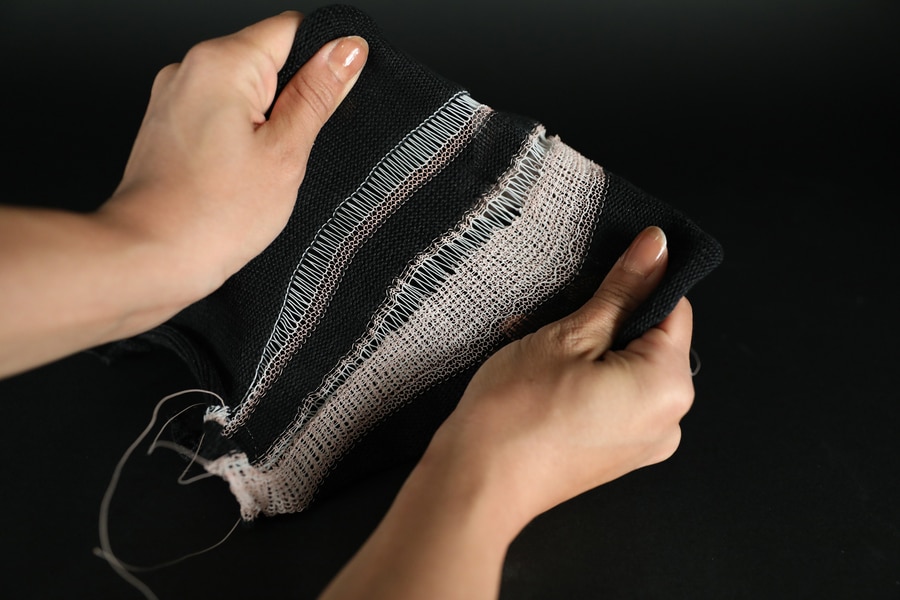The affordable FibeRobo, fitting seamlessly with current textile methods, holds potential for adaptive sportswear and compression clothing.

Imagine a jacket that adapts its insulation based on the temperature, eliminating the need for separate coats for each season.
MIT researchers have developed a programmable fibre called FibeRobo that might bring this idea to life. This unique fibre contracts when exposed to rising temperatures and automatically reverts when the temperature drops, all without the need for embedded sensors or rigid components.
The affordable fibre seamlessly integrates with common textile methods and can be mass-produced. Its adaptability allows for programmable features in garments, aiding post-surgery recovery. When paired with conductive thread, it provides digital control over fabric shapes, responding to inputs like heart rate readings.
Morphing materials
The team sought a silent, drastically shape-changing fibre compatible with standard textile methods. Their solution was liquid crystal elastomer (LCE), a material with molecules flowing like a liquid but settling in a crystal arrangement. As LCE heats, molecules misalign, pulling the elastomer and resulting in contraction; cooling reverses this. Fine-tuning the LCE’s chemical composition lets researchers dictate its properties, such as actuation temperature. They developed a method producing LCE fibre actuating at skin-friendly temperatures, overcoming challenges faced with other LCE fibres. Still, deriving fibre from LCE resin remains tricky. Moreover, researchers are investigating other functional fibres, including ones with microscale digital chips, activated fluidic systems, or piezoelectric material converting sound to electrical signals.
Fibre Fabrication
The process starts by heating and extruding the thick LCE resin through a nozzle. Proper UV light intensity ensures smooth extrusion, and post-extrusion, the fibre undergoes an oil dip, a UV cure at high intensity, and a powder coating for easy machine integration. This day-long process yields about a kilometre of fibre at 20 cents per metre—around 60 times cheaper than market alternatives. Dubbed FibeRobo, this fibre contracts up to 40% without bending, operates at skin-safe temperatures, and integrates seamlessly into various textile processes. Demonstrations include an adaptive sports bra that tightens during exercise and a Bluetooth-controlled compression jacket for a dog to mitigate separation anxiety.
The researchers aim to make the fibre recyclable or biodegradable and simplify its production for those without wet lab knowledge.






